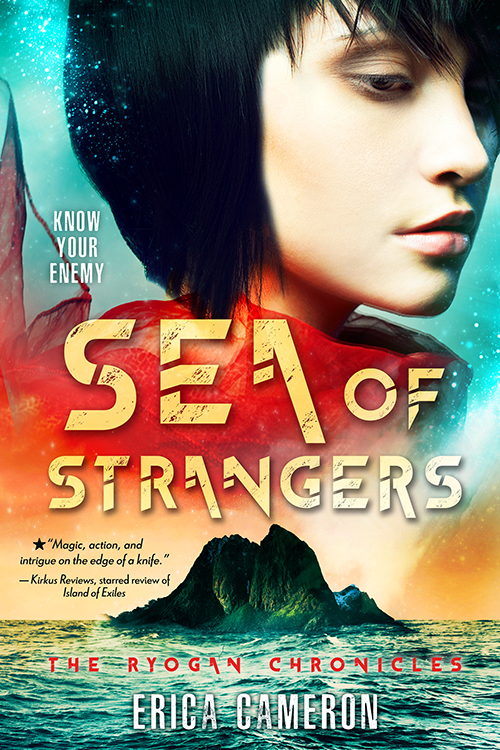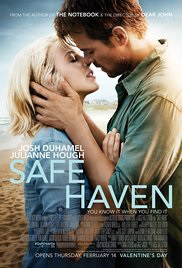Since I started writing in 2007, I have queried agents, gone on submission to editors, and attended dozens of conferences. Each experience has its own set of rules and expectations, and conference and conventions can be the hardest of them all to navigate if only because there’s far less information available online for them. Today, I have four points to help you make the most out of your next conference or convention.
Be aware.
There are hundreds of writing-related events all across the country. Some have particular focuses—SCBWI, for example, is a wonderful organization for those writing for children and teens—and others are going to be broader in scope and scale. Research organizations that match the genre you write in and see if they host any annual conferences. Pick the one that will help you learn and grow in your genre as much as possible. Those will also be the events that put you in contact with the people you need to meet.
Be prepared.
Once you’ve picked which conference you’re attending, start doing research on the attendees. Who’s speaking? Are any agents or editors taking pitches? What does each agent or editor specialize in? What were their recent sales or acquisitions? It doesn’t usually do much good to try selling a dark sci-fi series to someone who specializes in light-hearted women’s fiction. For agents, check out their submission guidelines and create a printout you can bring with you. If you’re meeting with editors and can’t find any submission guidelines, having one chapter and a one-page summary of your book is usually a good place to start. However, it’s expensive to travel. Agents and editors usually have to cram everything they need for the conference or convention into a small bag. It’s hard for them to carry stacks of printed pages and materials home with them again. A business card, though? That’s absolutely doable. Even if you’re coming as an aspiring author, it’s not a bad idea to have business cards. They should include your name, email address, the genre you write in, and any applicable website or social media information.
Be respectful.
Agents and editors come to conferences to find new talent. That is specifically why they’re there, so it’s okay to approach them with questions or to start a conversation. The thing to remember is respect. It’s business, yes, but they’re also people with lives outside of publishing. Don’t expect hours of attention. Try not to interrupt if they’re in conversation with someone else, though joining a conversation with a group is often fine if you have something to contribute. Whatever you do, don’t try to pitch a book in the bathroom. It sounds obvious, but it happens far more often than it should. I know this because industry professionals talk. They tell stories at events about all of the ridiculous, rude, and outlandish interactions they have had with authors in the past. Good stories won’t be passed around like office gossip, but a bad interaction absolutely will.
Be open.
Opportunity slips up beside you unexpectedly sometimes, but the only way to take advantage of the moment is to take every chance offered. In 2015, a group of young adult authors organized a lunch during RT, and I ended up sitting next to a debut author named Kate Brauning. What I didn’t realize at the time was that she was also an editor with Entangled Teen. That casual conversation sparked a second, more in-depth discussion, and eventually turned into a three-book deal for my young adult fantasy series, The Ryogan Chronicles. At the same convention, a panel appearance I did attracted interest from another publisher, and after another conversation and a proposal, I sold the Assassins duology to Riptide’s YA imprint Triton Books. The point is that you may go to an event intending to pitch to one person, but you never know who you might end up talking to. Be open to talking to those around you and ready to discuss what you’re writing, and you never know what a single conversation could bring.



Know your enemy if you want to survive…
The only way for Khya to get her brother back alive is to kill Varan—the immortal ruler who can’t be killed. But not even Varan knew what he was doing when he perverted magic and humanity to become immortal.
Khya’s leading her group of friends and rebels into the mountains that hold Varan’s secrets, but if risking all their lives is going to be worth it, she has to give up everything else—breaking the spell that holds her brother captive and jeopardizing her deepening relationship with Tessen, the boy who has been by turns her rival and refuge since her brother disappeared. Immortality itself might be her only answer, but if that’s where Khya has to go, she can’t ask Tessen or her friends to follow.



Erica Cameron is the author of books for young adults including the Ryogan Chronicles, the Assassins duology, and The Dream War Saga. She also co-authored the Laguna Tides novels with Lani Woodland. An advocate for asexuality and emotional abuse awareness, Erica has also worked with teens at a residential rehabilitation facility in her hometown of Fort Lauderdale.
Author Links:
Author Website: ByEricaCameron.com
Author Blog: ByEricaCameron.com/wp/blog/
Author Twitter: http://www.twitter.com/ByEricaCameron
Author Facebook: http://www.facebook.com/ByEricaCameron
Author Goodreads: http://www.goodreads.com/ericacameron
Newsletter: http://byericacameron.com/wp/newsletter/
Author Instagram: https://www.instagram.com/byericacameron/
Author Pinterest: https://www.pinterest.ca/byericacameron/
Author Tumblr: http://byericacameron.tumblr.com/
Advertisements Share this:





